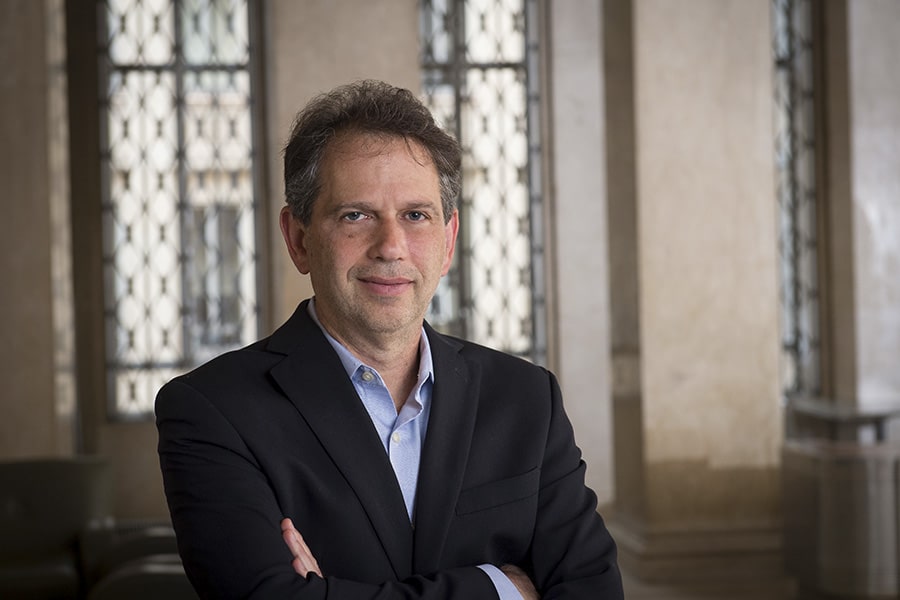Carnegie Mellon Named NSF Planning Institute for Artificial Intelligence in Physics
Carnegie Mellon University has received a $500,000 planning grant from the National Science Foundation (NSF) to work toward creating a National Artificial Intelligence Research Institute in Physics.
Today, the NSF announced grants to create five full institutes and 10 planning institutes that will focus on advancing foundational artificial intelligence (AI) research, accelerating innovation in scientific fields using AI, building the next generation of talent and bringing together scientists from a wide range of fields for interdisciplinary collaboration. The grants represent the NSF's most significant investment in AI research and workforce development to-date.
As a recipient of one of the planning institute grants, Carnegie Mellon will work over the next two years to develop the capacity to become a full institute. They will focus on applying AI to astrophysics, subatomic physics and biophysics.
"So much of physics is data rich, whether we are collecting data from the entire night sky, advanced particle detectors like the Large Hadron Collider or modeling individual proteins in a cell," said Scott Dodelson, professor and head of the Department of Physics and principal investigator of the NSF grant. "The partnership between AI and physics will be synergistic. AI will accelerate physics discovery for the future. In turn, what we learn can be fed back into foundational AI research."

Scott Dodelson
For example, researchers in the Department of Physics' McWilliams Center for Cosmology routinely collaborate with Carnegie Mellon computer scientists and statisticians. The teams have developed methodologies for interpreting the vast amounts of data that will be collected by next-generation telescope projects, including the Simonyi Survey Telescope at the Vera C. Rubin Observatory (formerly called the Large Synoptic Survey Telescope). Often the algorithms that the Carnegie Mellon-led teams develop have applications for other fields, including image recognition and processing.
"Physics provides the complex use cases and profound problems that motivate AI researchers to advance AI techniques," Dodelson said.
The connections between astrophysicists and AI researchers at Carnegie Mellon have been ongoing for 20 years, and interactions with biophysicists and sub-atomic physicists are more recent. Under the planning grant, Carnegie Mellon will promote these cross-disciplinary interactions and encourage new collaborations. These collaborations will focus on the exploration of some of the most important topics in physics today: galaxy formation, dark matter and energy, physics beyond the standard model, measuring the Higgs potential, and biological imaging and modeling.
"Carnegie Mellon has a long history of leadership and expertise in physics, artificial intelligence, machine learning, statistics and data science. This grant will allow the university to continue to lay the groundwork for integrating these fundamental fields," said J. Michael McQuade, Carnegie Mellon's vice president for research. "We are excited for this opportunity to grow into what we hope will become a full institute for AI and physics."
In addition to supporting research and interdisciplinary collaborations, the grant also supports the development of an education and outreach program that Carnegie Mellon will use to bring new audiences into the physics/AI space, including new collaborators and partners and K-12, undergraduate, graduate and community college students, with an emphasis on people from underrepresented groups. The Pittsburgh Supercomputing Center, a joint effort of Carnegie Mellon and the University of Pittsburgh, will lead this component, providing resources and expertise for conferences, training sessions and outreach.
Carnegie Mellon researchers working on this grant include the following:
- Departments of Biological Sciences and Computational Biology: Russell Schwartz
- Department of Physics: John Alison, Shiladitya Banerjee, Rupert Croft, TIziana Di Matteo, Dodelson, Ulrike Endesfelder, Rachel Mandelbaum, Curtis Meyer, Manfred Paulini, Hy Trac
- Department of Statistics and Data Science: Mikael Kuusela, Ann Lee, Chad Schaefer, Larry Wasserman
- Machine Learning Department: Lee, Barnabas Poczos
- Pittsburgh Supercomputing Center: John Urbanic